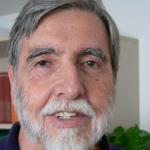Verum ipsum factum
We need to understand how things work, to know how to assemble and how to disassemble them. But we have reached a point of so much specialization and mechanization that too much often we can not understand how everything works, and even more, if we will be able to fix what we have broken.

Giambattista Vico (1668-1744) was a philosopher opposed to Descartes rationalism. For Vico, we can only understand what we can make (verum ipsum factum), this means basically our own history and the mathematics. The idea came from Bacon and other advocates of experimentalism against Descartes thesis, but Vico put this at the center of his philosophy. He believed that in humans there is not only rationality, but also feelings and fantasy. He anticipated Romanticism and Enlightenment, and gave a basis for the social sciences: in his historical analysis he included class struggle before Marx and described history as an spiral in which no stage is repeated, but similar sequences appear as recurrent.
For him, nature was not a human production and, therefore, although we could think about nature, we could not understand it. Mechanics contained more truth than physics, and physics more than moral science. Vico's ideas were forgotten for a long time, but rediscovered, among others, by Samuel Coleridge and Benedetto Croce. James Joyce seems to have been inspired by the Vico’s Nuova Scientia in writing Finnegan's Wake. Today, Vico is highly respected for its originality.

It is true that, if we can make, produce, assemble and disassemble things, we understand them more deeply. This is a good reason for manipulation in molecular biology and genetic engineering, or for experimentally assemblage of living cells by adding a nucleus to a previously emptied cell. Margalef said that the study of major human actions, like building highways or reservoirs, is an opportunity for get better understanding of nature reactions. In ecological education, it is useful to construct small ecosystems, such as an aquarium or the restoration of degraded ponds. The ecological restoration of disturbed areas is a very useful way to learn about ecosystems.
We can doubt about the idea that the ability to produce a thing is a prerequisite for understanding; nevertheless, it is sure that our understanding of something increases if we are able to disassemble and reassemble it.

Since my childhood, I was fascinated by Mark Twain’s book A Connecticut Yankee in King Arthur's Court. In it, an engineer of the twentieth century is transported, by a strange phenomenon, to Arthur times. There, with his abilities to build cycles, telephones or telegraph and to produce electricity, he becomes a powerful magician. I always thought that if I find myself in that case, I could not build anything of those useful things.
Today, there is a general ignorance about how our facilities and tools are built. When we bring the car for a repair, the mechanics most times are not able to find the fault by themselves without a computer’s aid. Our culture has produced increasingly complex objects, but this has been done collectively, with the cooperation of many specialists. A single engineer can hardly build the tools he uses every day.

People’s vast majority are resigned to not understand what is already a part our mixed societies (that include humans, other live beings, prosthesis and so many tools that increase our capabilities). If we accept that at least part of the “truth” is related to our ability to assemble and disassemble, we must accept that while the collective scientific and technological understanding increases very fast, the individual average understanding declines with an equal rate. And this creates a growing distance between human masses and the elites who pay those who understand and design. Such a process clearly involves a risk for the democracy.
We have learnt a lot about nature, but there is still much that we do not understand. The risk of a global environmental crisis exists: we need to transmit what we learn to most people, we need science to be universally "understood" or "believed".

Things that we ignore can drive us to mistakes that would lead to a crisis. In ecology, Vico’s recipe is good for accelerating the progress of knowledge: we must build sustainable ecosystems, rethink and remake cities, farming and livestock management; we must study deconstructions and reconstructions; we must end with pollution and, when possible, we would restore the atmosphere. And we might do it all together, or we can lose democracy on the way.







